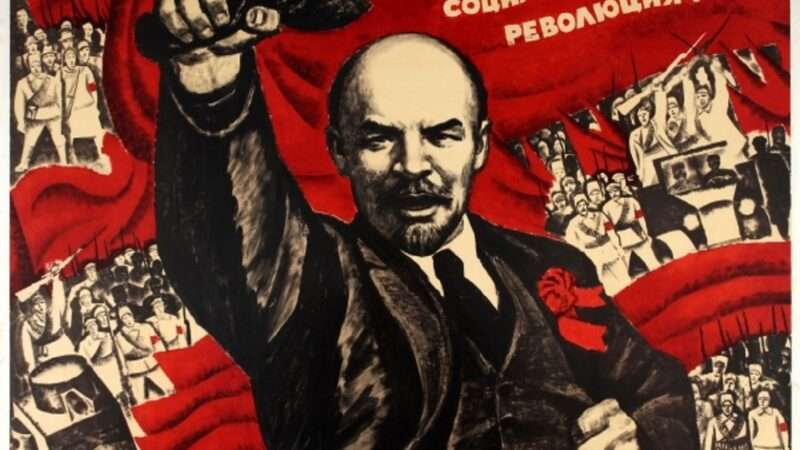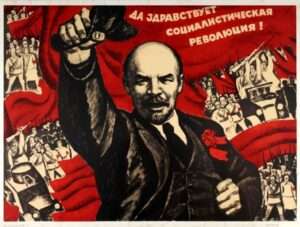

Today is the 100th anniversary of the death of Vladimir Lenin, the first leader of the Soviet Union, the world's first communist state. While Lenin's successor Joseph Stalin has few modern Western defenders (even as the current Russian government has tried to rehabilitate him), Lenin still has many admirers among Western leftists. They tend to ignore the great evil he did or blame it on Stalin.
Nothing can be further from the truth. Most of the cruel oppressive features of Soviet totalitarianism actually began under Lenin. Stalin merely perpetuated them on a larger scale.
Let's take a little history quiz. Which of the following features of the Soviet state were first introduced under Lenin, and which by Stalin:
1. The Gulag system of slave labor camps
2. The Cheka (secret police agency eventually known as the KGB)
3. Collectivization of agriculture leading to mass famines
4. Mass executions with little or no due process
5. A one-party state, with bans on all opposition parties (including socialist ones)
6. Suppression of freedom of speech and religion
7. Confiscation of private businesses, including even small businesses
8. Invading other nations in order to spread communism there
9. State control of the media for purposes of promoting regime propaganda, and preventing distribution of opposition speech
If you answered Lenin, you were correct in every case! And virtually every one of these measures was also supported by Trotsky, Bukharin, and other Bolshevik leaders whom some Western leftists like to trumpet as potentially superior alternatives to Stalin. Had Trotsky rather than Stalin come to power after Lenin's death, he would have happily continued all of the above, and in some cases doubled down on it.
Policies 3 and 7 on this list were partially suspended or reversed under Lenin's New Economic Policy, beginning in 1921. But Lenin and other Soviet leaders were always clear that this was just a temporary expedient they intended to reverse as soon as possible.
The late Harvard historian Richard Pipes has an excellent overview of Lenin's oppressive policies and their consequences in his book Russia Under the Bolshevik Regime.
It's also worth noting that Lenin was the one who elevated Stalin to the position of General Secretary of the Communist Party, thereby greatly increasing the likelihood that Stalin would ultimately succeed him. It's unlikely Lenin would have done that if the two men had major disagreements on ideology and policy.
Did Stalin engage in any new forms of repression? Yes, as a matter of fact, he did:
1. Deportation of entire ethnic groups (most notably the Crimean Tatars). I doubt Lenin would have had scruples about this if he thought it might be useful. But he didn't actually do it, at least not on a large scale.
2. State-sponsored anti-Semitism. There was no shortage of anti-Semitism in Lenin's USSR. But Lenin didn't actively promote it and probably wasn't an anti-Semite himself. He even occasionally condemned anti-Semitism. On this issue, Stalin was much worse.
3. Large-scale purges of loyal communists. Lenin never did this, and Trotsky probably would not have had he come to power. This is the Stalinist policy that most alienated many Western leftists. How dare Stalin kill communist heroes like Trotsky, Bukharin, and others? But it was among the least of Stalin's crimes. Many of Stalin's communist victims were actually brutal oppressors themselves, and arguably got what they deserved (albeit, for the wrong reasons, and without due process). In fairness, Stalin also purged a lot of communists who weren't actively involved in repression, but just joined the Party to advance their careers (you can say the same thing about many Germans who joined the Nazi Party after it came to power).
If you add it all up, Lenin was the one who initiated the policies that caused about 90% of the repression and death in the Soviet Union. And these ideas weren't idiosyncratic to Lenin. They were backed by the vast majority of other communist leaders, as well, which is why later communist regimes tended to adopt similar policies to those of the Soviet Union and got similar results. Mao Zedong managed to exceed the Soviet Union in sheer numbers of victims (he had a much larger population to work with). Cambodia's Pol Pot killed a higher percentage of his population in a shorter period of time, and arguably managed to exceed both the Soviets and Chinese in sheer torture and cruelty. But these mass murderers were, on major issues, still largely following the model first established by Lenin.
With a few notable exceptions listed above, Stalin mostly just continued and expanded Lenin's evil policies. Ultimately, the root of the evil here wasn't the personality of any one leader, but the ideology Lenin, Stalin, and their comrades all sought to implement. But Lenin was nonetheless notable for being the first to lead a regime that pursued these policies, and set an example for all that followed. That is how we should remember him.
The post Remembering Lenin—the First Great Communist Mass Murderer appeared first on Reason.com.







